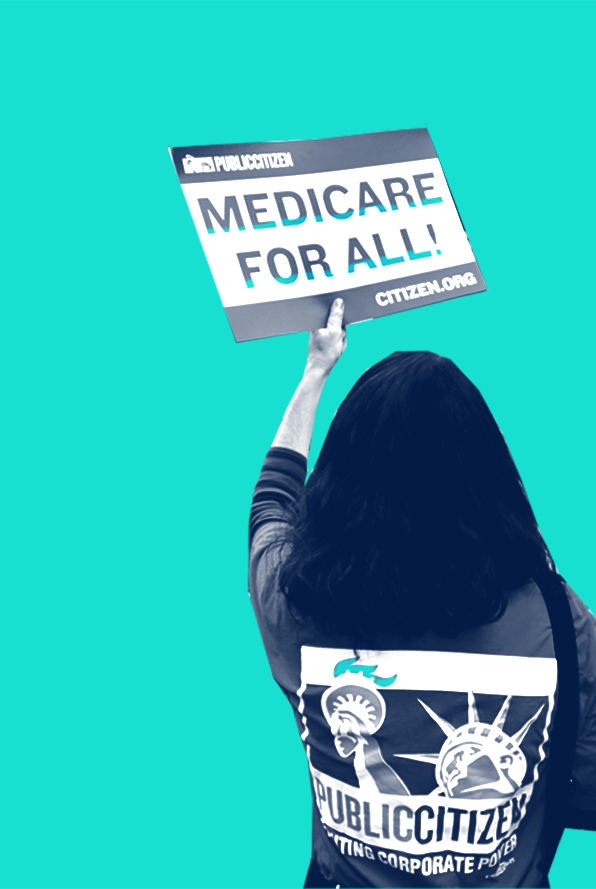Dispelling Common Myths About Medicare for All
By Lane Hagar
Recently, the Ways and Means Committee, one of the most influential committees in the House of Representatives, held a hearing on Medicare for All. The testimony by witnesses and subsequent questions by members of the committee helped inform a discussion that has been ongoing for several decades. Namely, how can we ensure everyone in the U.S. has guaranteed access to high-quality health care? While witnesses and members of Congress raised numerous facts and figures at this hearing, several myths surrounding the health care debate were also trotted out in an attempt to derail the meaningful discussion that took place. It’s time for these common myths regarding Medicare for All to be debunked once and for all.
Myth 1: It would cost too much.
While some estimates predict Medicare for All would cost more than $32 trillion over the course of 10 years, this figure is misleading and doesn’t tell the full story. Americans already spend an exorbitant amount on private health insurance. In fact, in 2017 alone, Americans spent $3.5 trillion on health care. According to a recent study from the Political Economy Research Institute at of the University of Massachusetts, Medicare for All would cost 10 percent less annually, when compared to our current health care system. The study concluded that under Medicare for All, health care costs from 2017 to 2026 would be around $37.8 trillion compared to projected costs of $42.9 trillion for our current health care system. The administrative costs associated with private insurance unnecessarily inflate the cost of U.S. health care. Furthermore, the large number of private insurers creates an inefficient process for negotiating the price of procedures, drug prices, etc. Allowing the U.S. government to negotiate on behalf of the American people would drive down total health care costs.
Myth 2: The health care provided would be lower quality.
A common argument raised by opponents of Medicare for All is that wait lines will be too long if the government handles health care. Compared to other countries, the United States’ reported wait times are unimpressive, with U.S. wait times comparable for many services. When discussing the quality of health care, it is important to note that many Americans do not seek necessary medical attention because they can’t afford the care they need—in essence a never-ending wait for care. Many people ration their prescribed medications because drug prices continue to rapidly rise in the U.S. A 2018 study found that 40 percent of Americans skipped medical tests or treatment and another 32 percent were unable to fill a prescription or rationed their medication due to costs. Avoiding preventative treatments and not taking necessary medicines can lead to devastating complications and expensive hospital visits in the future. Medicare for All will build on the successful foundation of the current Medicare program and provide the same level of quality care that helps keep the program incredibly popular among those enrolled.
Myth 3: The government could not effectively manage Medicare for all Americans.
This argument ignores the successful management of the current Medicare program. Within the first year of Medicare’s creation, over 19 million Americans enrolled. That number has risen to more than 60 million Americans in 2017. The United States’ government already has the necessary foundation in place, Medicare, to make Medicare for All succeed. By improving Medicare and expanding it to everyone in the U.S., Medicare for All would ensure guaranteed health care while bringing down costs. Because Medicare for All would guaranteed coverage nationwide, it would consequently require increased infrastructure, but the transition would be implemented in phases. For example, the legislation proposed by Senator Sanders (I-Vt.) would automatically enroll children born after passage of the bill and would integrate other parts of the population into the program over four years. A similar bill in the U.S. House of Representatives would transition everyone in the U.S. to Medicare for All in two years, with some populations having immediate access.
What’s next?
As action in Congress and the 2020 presidential election continues to heat up in the coming months, it’s essential that everyone in America understand the challenges with our current health care system and the critical need for reforms. Public Citizen has posted reports and articles that expound on the merits of a Medicare for All system in the United States.
However, not only should everyone be able to distinguish between the facts and myths that surround Medicare for All as debate around the future of health care continues to grow, but people who believe that health care is a human right should get engaged in the fight. Find out more about how to join the movement in your local community by visiting Medicare4AllResolutions.org.
